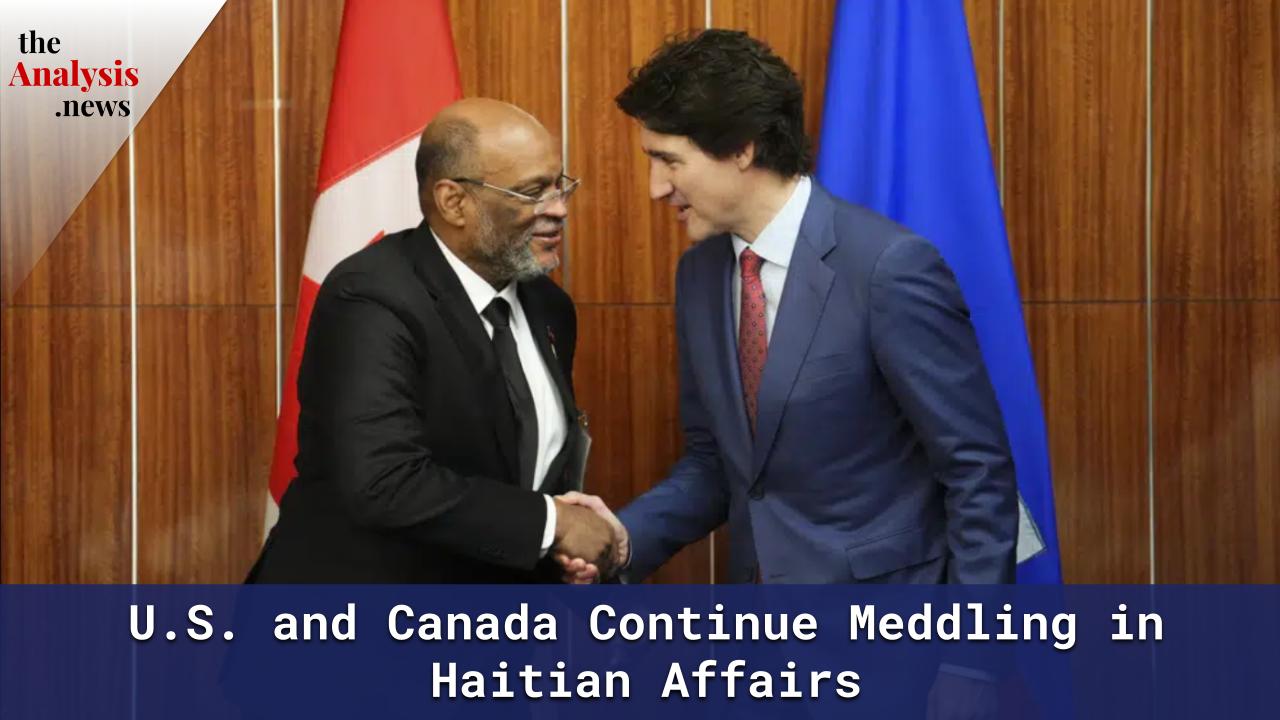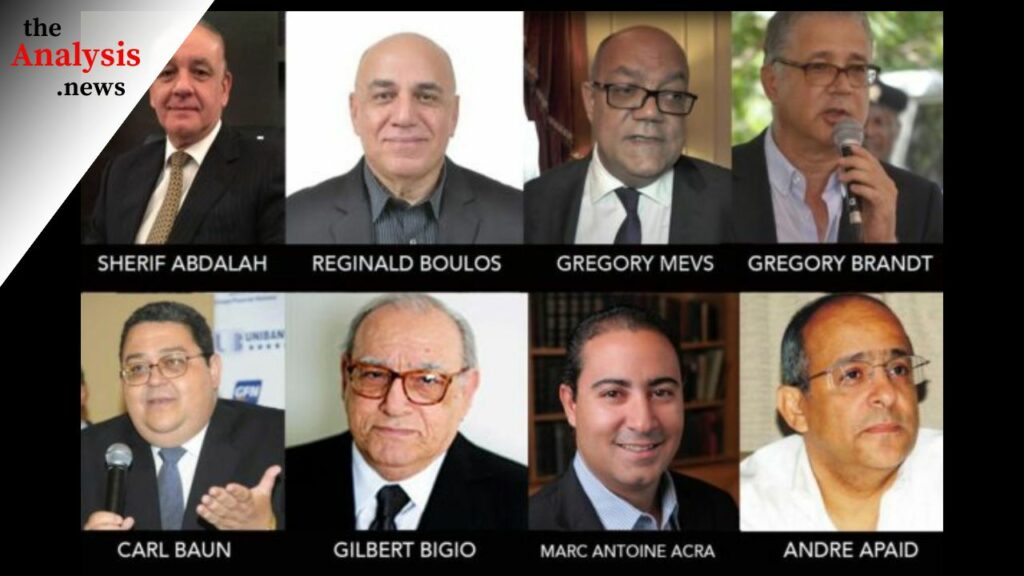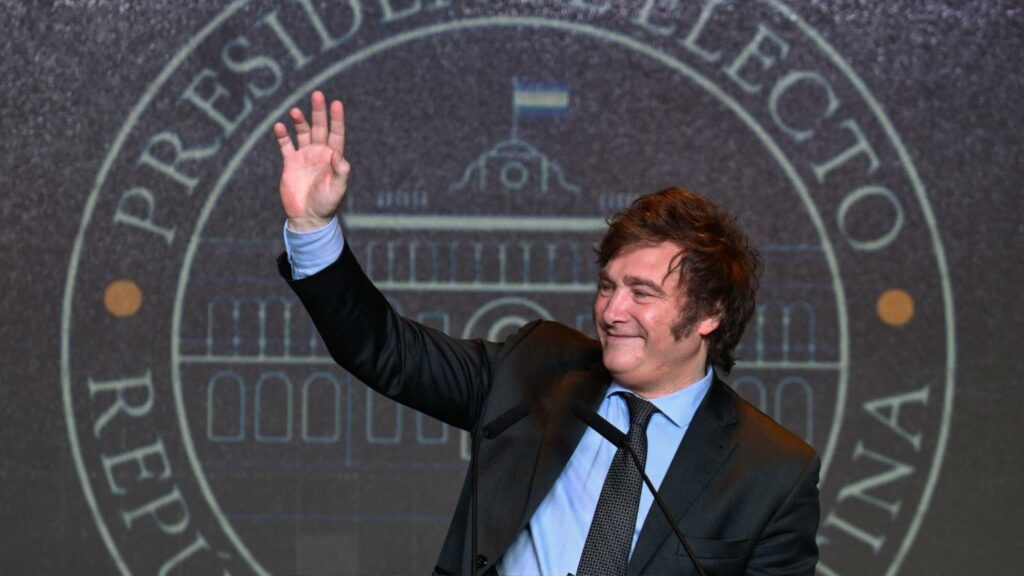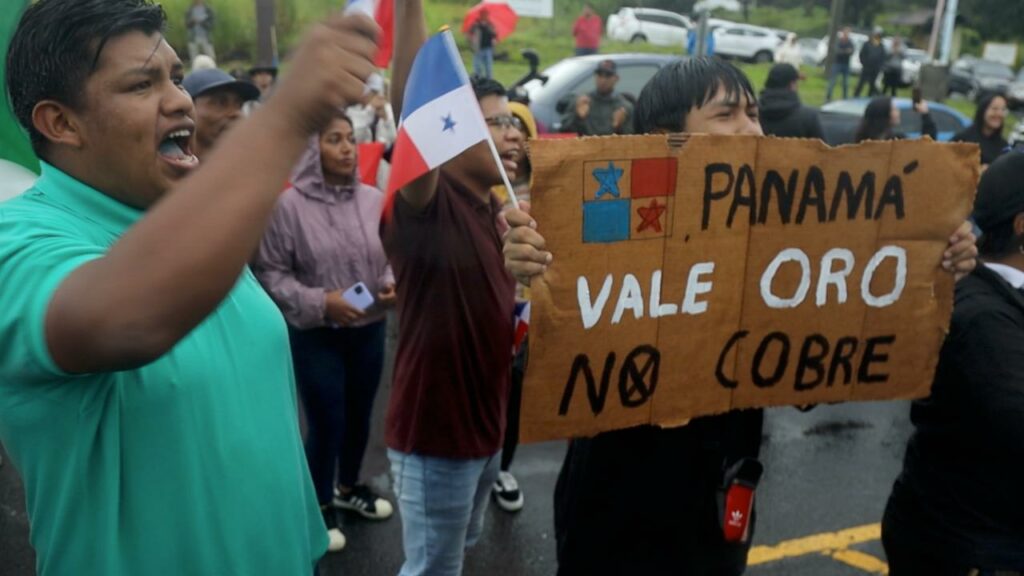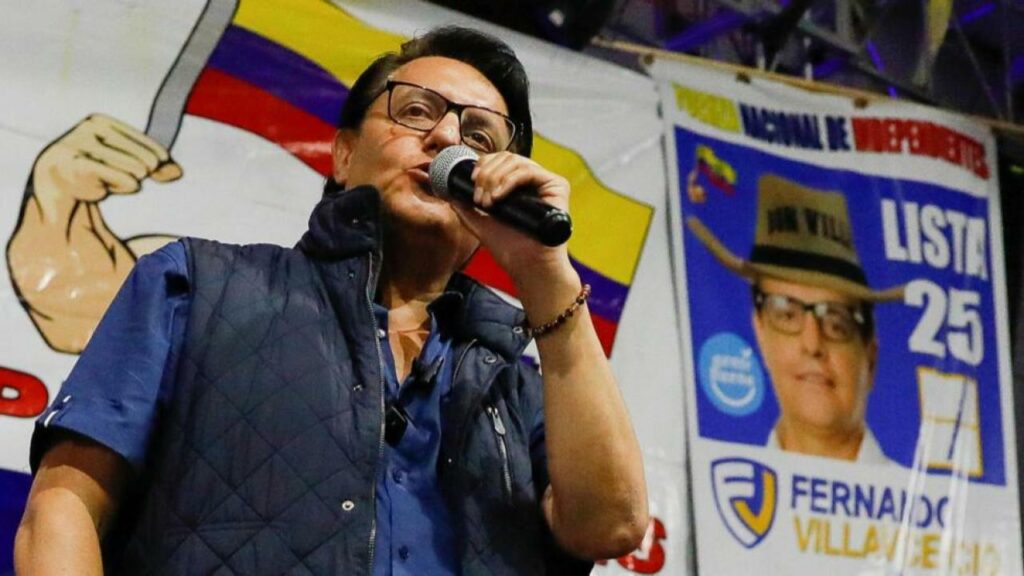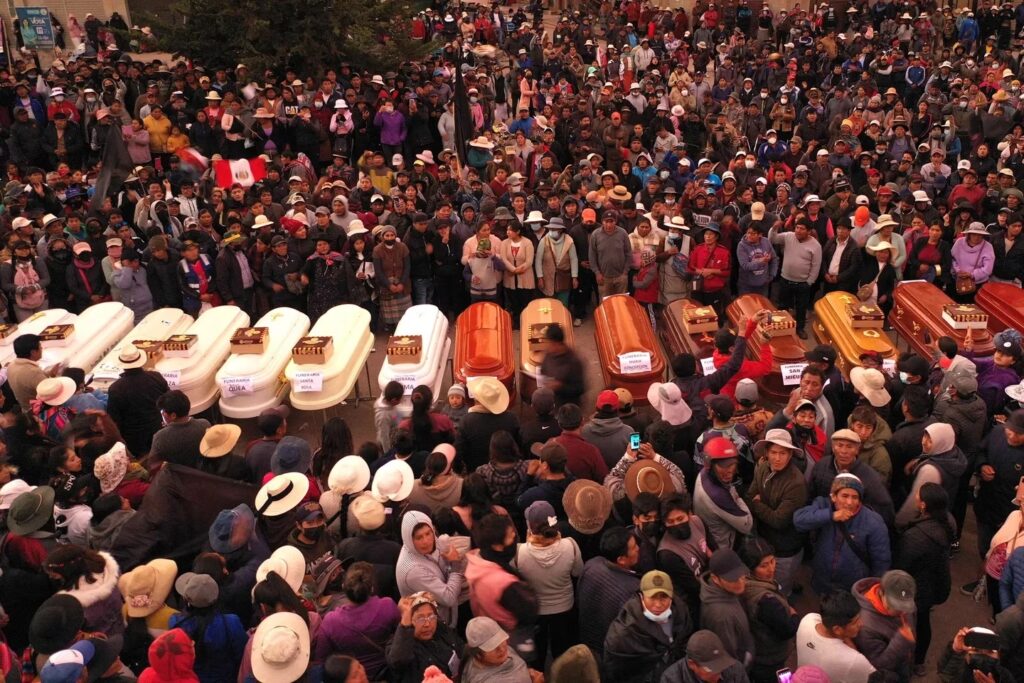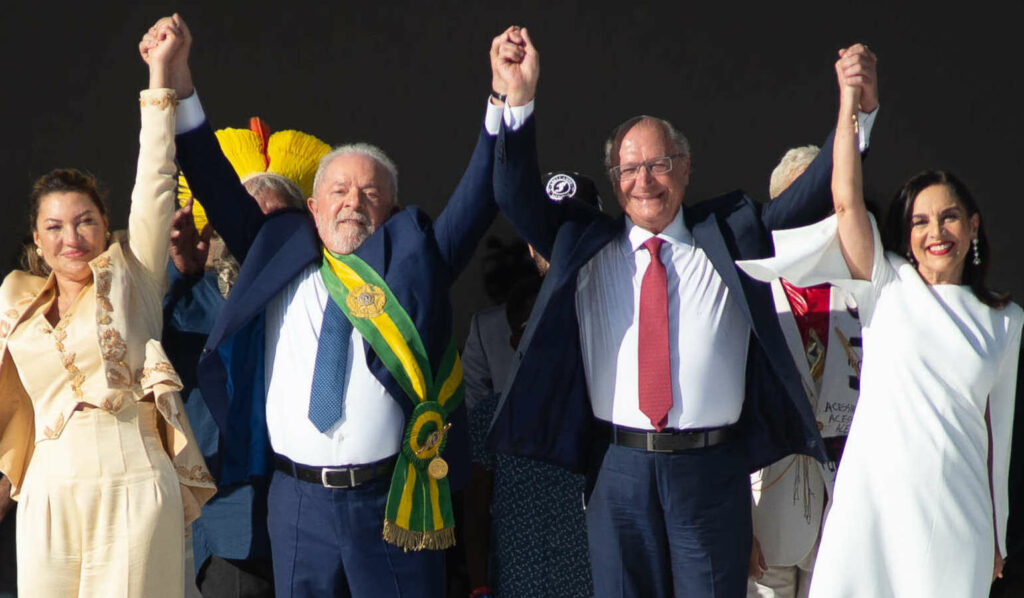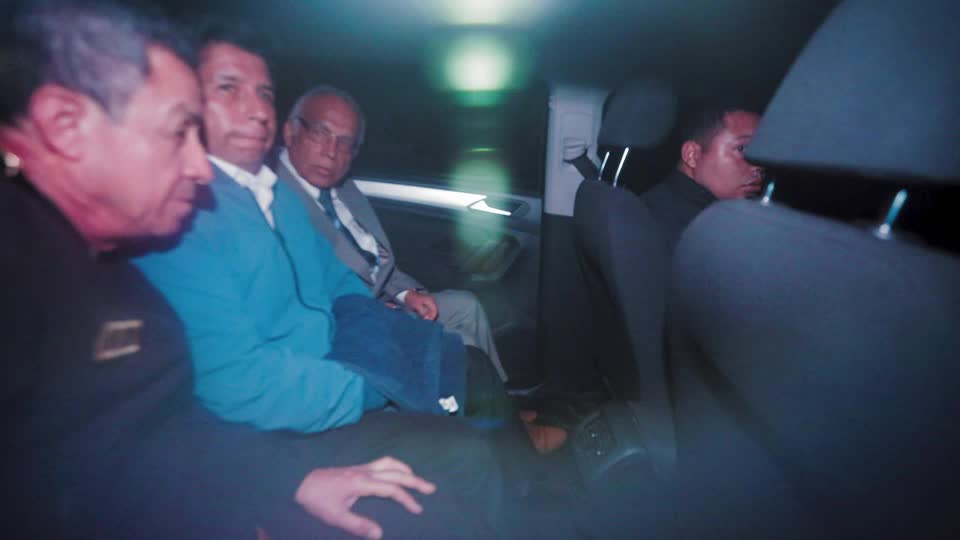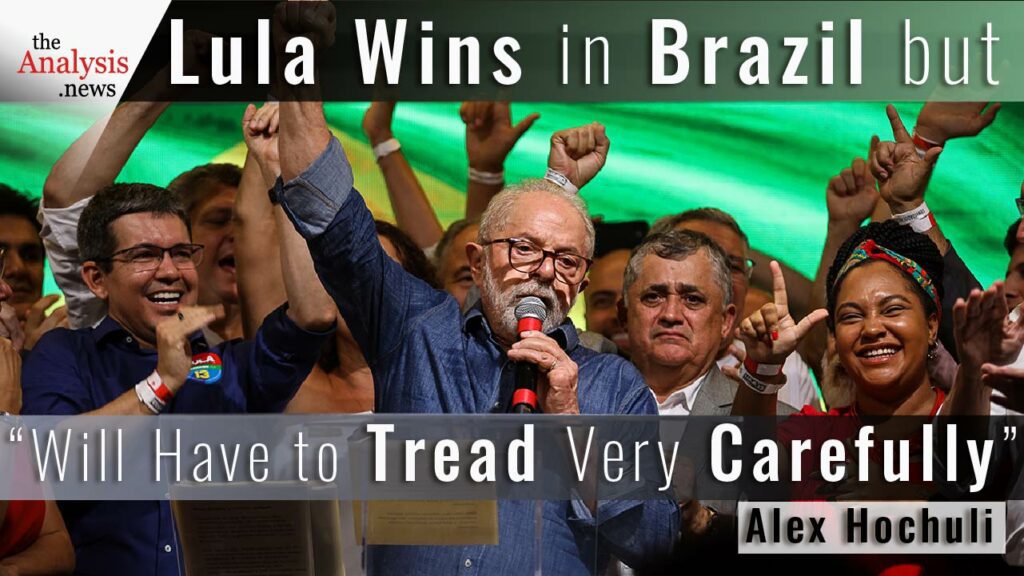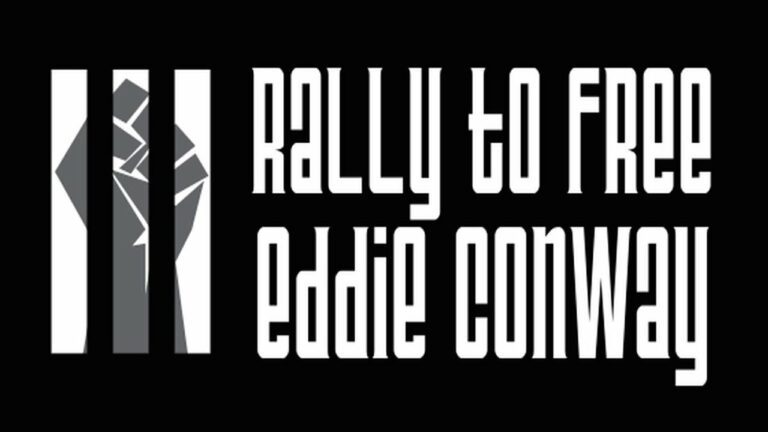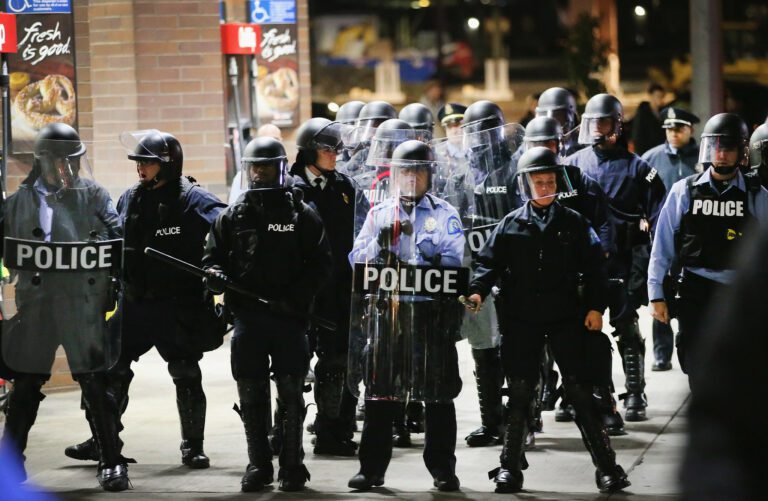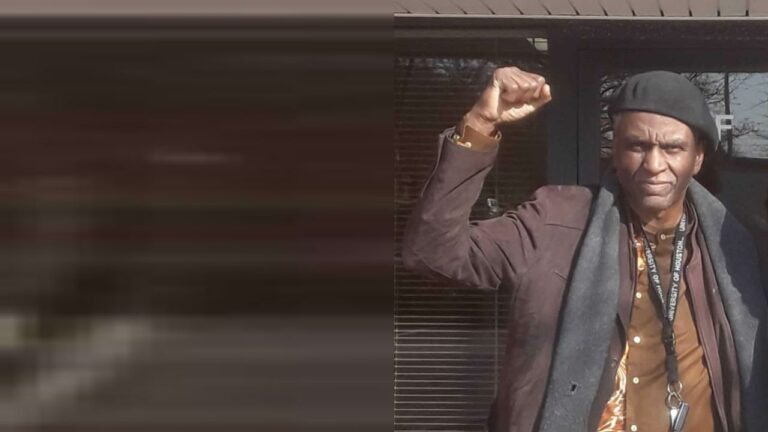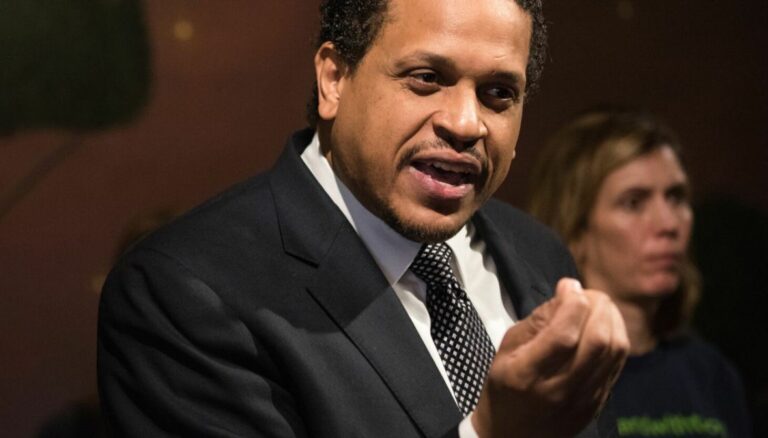Jafrikayiti is an artist, author, activist, and radio show host, and works for Solidarité Québec-Haiti. Part 1 of his analysis of foreign intervention in Haiti presents a scathing critique of French, U.S., and Canadian powers who have dismantled Haitian democracy, as well as looted the country for countless decades. He argues that political leaders who are appointed by western powers, such as the current interim Prime Minister Ariel Henry, are illegitimate figures who continue to do a disservice to Haiti’s political institutions. Furthermore, Jafrikayiti explains how the exploitation of Haiti cannot be understood without examining the racial underpinnings of imperialism and capitalism.
Part 2: Haiti’s Predatory Ruling Families and Jimmy “Barbecue” Cherizier
Talia Baroncelli
Hi, I’m Talia Baroncelli, and you’re watching theAnalysis.news. I’ll shortly be joined by Jafrikayiti for an in-depth conversation on the current situation in Haiti. But first, please go to our website, theAnalysis.news, and consider donating to the show. You can also get onto our mailing list; that way, you’ll be notified every time there’s a new episode. Also, go to our YouTube channel, theAnalysis-news. Hit like on all the videos you want to watch, subscribe, and hit the bell; that way, you’re notified every time a new episode is published. I’ll be back in a bit with Jafrikayiti.
Almost two years ago, the autocrat Jovenel Moïse was assassinated by a conglomeration of Colombian mercenaries and other Haitians opposed to his regime. Most recently, Rodolphe Jaar, a Haitian-Chilean businessman, as well as a convicted drug trafficker and U.S. informant, pled guilty to conspiracy to commit murder before a U.S. court. Since then, the country has not been in a position to hold independent elections, and Haitians continue to be deprived of access to clean water or to enjoy a dignified standard of living.
Why is this impoverished country experiencing this instability in the first place? Haiti’s woes can be traced to a long history of foreign intervention in the country. Up until the end of the 18th century, Haiti was a slave society under the control of colonial France. The Haitian Revolution was an incredible moment in modern history where black slaves overthrew their colonial masters. The Haitian Constitution extended social and political rights to all black people on the island but also to indentured Polish and German workers who supported the cause.
Beginning in 1791, Haitian slaves revolted under the leadership of General Toussaint Louverture. In response to this uprising, France abolished slavery throughout its colonies in 1794. In 1804, Haiti declared its independence from France. Yet independence came at a devastatingly high price.
In 1825, Haitians were forced to begin paying 150 million francs to the French government to secure their independence, purportedly for the damages caused to the French economy after losing its lucrative plantations in Haiti. Haiti ended up paying the equivalent of $21 billion U.S.D. for its independence. The country couldn’t afford to pay France all at once, so it was forced to take out loans from French banks and later from American Citibank at high-interest rates. It was only in 1947 that it finished paying back these loans to Citibank.
The French economist Thomas Piketty has estimated that France owes Haiti approximately $28 billion U.S.D. for its so-called independence debt.
The indebtedness of Haiti to American banks, as well as the prospect of confiscating Haitian resources, led Wall Street to push the U.S. to invade Haiti in 1915. Of the countless atrocities committed under the occupation, U.S. Marines stole Haiti’s entire gold reserve from its banks and left 15,000 people dead. The occupation of Haiti only came to an end in 1934. Indebtedness and corruption in Haiti were exacerbated by President François Duvalier, who set up the militia Tonton Macoute in 1959.
It wasn’t until the 1990s that Haiti’s political future was finally looking brighter. It held its first democratic elections in 1991, electing the liberation theologist Jean-Bertrand Aristide. Aristide’s focus on social justice and autonomy provoked the powers in Washington. Aristide faced not one but two coup d’états supported by the U.S. and its allies, the last one ousting him from office permanently in 2004.
Since then, a UN mission which brought cholera to the country, as well as a devastating earthquake in 2010, have depleted the country’s public coffers while its political elite profit from control of the country’s resources.
Joining me now is Jafrikayiti. He is an activist, author, radio show host, and artist, and he works for Solidarité Québec-Haiti. Thanks so much for joining me, Jafrik.
Jafrikayiti
Thank you for inviting me, Talia.
Talia Baroncelli
Since the assassination of Jovenel Moïse in 2021, which was almost two years ago, Ariel Henry has been the acting President of Haiti, but he was never elected. What do Haitians need now in order to return to some semblance of democracy?
Jafrikayiti
Well, I think, first of all, there is no point in referring to Ariel Henry as prime minister or president. In Haiti, a president is someone who is elected. The prime minister, which is his actual title, is appointed by the elected president but is not to come into office until they present their credentials to a Parliament, which we do not have.
In reality, what needs to happen in Haiti is that the governance of the country needs to return to Haitians. That means this ‘faire semblants (make-believe)’ that there is a Haitian government needs to cease. The United States, which is running the show, as well as Canada, the European Union, OAS, and the UN, who intervened and overthrew the last real Haitian government that Haitians chose back in 2004, need to acknowledge that this mess is theirs.
Haiti had 7,000 elected officials in 2004. They had their meetings here in Gatineau. They decided that the Haitian government had to be overthrown. They replaced them with thugs who embezzled billions of dollars. The country is in a mess. There is no government. Now they’re spending all of this effort trying to protect a semblance of governance. They are also pretending to be foreign to the mess that was created. They’re getting away with it in large part because the media does not ask those questions of Joe Biden, Justin Trudeau, and others. When they’re having these senseless conferences about how to fix Haiti, no one is asking them what happened to the real government of Haiti. I thought you guys overthrew that government in order to make Haiti better. That was the plan. That’s what they announced to the world.
After the earthquake, Bill Clinton got involved, and they collected billions of dollars in the name of Haitians. But at the same time, they imposed a set of criminals, such as Michel Martelly and Laurent Lamothe, on Haiti. Now, it would be comical if it wasn’t tragic that those same countries that rigged the elections, such as the 2010-2011 elections when Hillary Clinton went to Haiti and ordered the Director of the Electoral Council to change the results and take someone who was fifth on the list and put him in the second round to become president. These are the same people and the same government who rigged the elections in Haiti: Canada, the United States, and Europe; as part of this thing called the Core Group; they’re sanctioning the people they put in power.
Now, of course, those sanctions are invisible to us. They claim that they are taking sanctions against those people. I would say that for people who have been found to be in collusion with kidnapping gangs, the sanction for them is not to put their name on the list; it’s to arrest them. That’s what the Haitian people have been asking for. Give some help to arrest the criminals, the [inaudible 00:09:05] criminals linked to the Clintons’ who were put in power fraudulently, violently by foreign interference by the United States, Canada, and France. Arrest these people. Collect the money that they have embezzled out of Haiti. Some of it may be hidden in Haiti still, but some of it has found its way to the United States, Canada, and Latin America. We need to find those resources and bring them back to the Haitian treasury so the people can have a real government on the basis of processes decided upon by Haitians. Not by Joe Biden, not by Justin Trudeau, but by Haitians.
Talia Baroncelli
Would you say that these gang members who were supported by Hillary Clinton at the time and the American political elite, would you say that they’re also supported by Haiti’s own ruling elite, or how are they able to sustain themselves?
Jafrikayiti
Well, of course, there’s always been collusion between the folks that they are calling elites in Haiti and corrupt elites in North America. To be precise, people need to search for a term, BAM BAM. B-A-M, B-A-M. It’s the first name, the first letter in the names of six of the richest families in Haiti: Bigio, Apaid, Mevs, Brandt, Acra, and Madsen. Now, all of these folks have their roots in what they are calling today the Middle East.
Bigio was the richest man in Haiti and was actually the former representative of Israel in Haiti. He is reportedly the richest man in the Caribbean. We are talking about a billionaire who lives in Florida most of the time. Now, this guy owns almost everything that has to do with the Haitian economy, whether it is with banks or oil. Everything! This is not hearsay. In fact, the United States sanctioned him back after the 1991 coup. Again, whenever we say the word sanction, we need to realize these things are smoke screens for the general public. It just means that the United States government issued a statement saying that these individuals were involved, or there was suspicion that they were involved in the coup in Haiti, and then you don’t hear anything anymore. When these sanctions are lifted, we don’t even know about that. In reality, it’s a way for the United States to pretend that there is a distance between itself and those corrupt individuals in Haiti.
We refrain from using the term elite when we’re referring to these individuals because, for instance, some of them bought sugar refineries. They closed them up to import sugar from the United States to sell in Haiti. So they’re not really industrialists. These are people who have monopolies because whenever there is a real government in Haiti, they spend a few million dollars to overthrow that government. Then the criminals they put in power allow them to have contracts in the import and export business. So yes, they are among the richest, but they are not elite in the sense of people who are richer in a country who are investing in important sectors of the economy and giving back to society. Yes, they are directly linked to the gangs. That’s why Canada and the United States have put the names of Abdalah, Bigio, and Boulos on those lists.
Again, I’m saying that the kidnapping gangs that we’re talking about here, instead of kidnapping middle-class and poor Haitians who have family members in the diaspora who, when these people are kidnapped, are sending their meagre resources to get their families released. Sometimes they take the money, and they kill the people anyways.
Now, imagine if, for a number of months and even years, you had gangs in Montreal who were kidnapping blue-eyed, blonde-haired Canadians for months and years. Do you think the response of authorities in Montreal, in the province of Quebec, in Canada, would be to draw a list of people who are associated with those guys? And to say that, well, they cannot travel to country X, Y, and Z, or that they’re going to sanction some of their products, no. They would get arrested, and they would be punished. That’s what we’re calling for.
Gilbert Bigio can be a billionaire. We’ve heard that they finance elections. They contribute to elections in the United States, but that’s not a reason for them to be untouchable. These people need to be arrested, tried, and put in jail. All of the resources that they have taken away from the Haitian people, such as taxes that they’re supposed to be paying that citizens are paying, should go to the Haitian national budget.
What is evident to anybody who’s been to Haiti is that Haiti is a country that did not benefit from the Industrial Revolution. You can travel from east to west, north to south of Haiti, but you will not find a single tunnel. If you try to go from the little town where my father was born, Léogâne, to go to Port-de-Paix, where my mother was born, it will take you 6-8 hours sometimes. Not because it’s 800 or whatever kilometers away; it’s not. It’s barely 200 kilometers away. That’s because there are no roads. You keep on turning around and around a mountain, going up and down, etc. There is no infrastructure built. Of course, that’s because there were dictatorships in Haiti.
It’s not just that because we have not had only dictatorships, we’ve also had enlightened leadership, whether it is under our founder, Jean-Jacques Dessalines, or leaders like Louis Étienne Félicité Lysius Salomon, who was a genius in terms of finance and organizing, taking the Haitian currency from being one-thousandth of a U.S. dollar and bringing it at par with U.S. dollars in a span of about 20 years or so.
What happened when Louis Félicité Salomon was President? Well, you had gunboat diplomacy where countries came together, countries of Europe, including Sweden. Countries that people don’t think about when they refer to Haiti, but the ambassadors in Haiti came together. Britain, Sweden, and the United States all threatened President Louis Félicité Salomon of sending their warships and bombarding the National Palace with him in it if he didn’t pay reparations to some of the merchants who claimed that they were a victim of social unrest in the country. When you go and investigate, the social unrest in question was instigated by them.
In other words, Haiti is a country that has been at war. The war is not an internal war. The war that Haiti is facing has to do with global white supremacy. I know these terms are not familiar. People are not at ease with analyzing it, but they must because you will not fix the problem in Haiti with a band-aid. Haiti needs reparations. There’s no other way about it.
Talia Baroncelli
Well, the social unrest that you speak about, I’m assuming we can tie it to the money that Haiti had to pay back to France in 1825, this 150 million francs or whatever it was at the time. Some of it was reduced, but essentially they paid an equivalent of 90 million francs, which is a lot of money, like $21 billion U.S.D.
Jafrikayiti
Yeah. President Aristide estimated $21 billion back in 2004. More recently, the New York Times in 2021 estimated it to be $115 billion U.S.D.
Talia Baroncelli
That’s a lot of money. So perhaps some of these issues with debt and infrastructure can be tied back to that. We can speak about the issue of race, racial domination, and suppression, but without even needing to speak about white supremacy, we can speak about that moment in which Haiti was completely indebted to a country which had basically had to pay for its independence. As a result of that continued indebtedness, it was not able to then build up its own infrastructure.
Jafrikayiti
What is more important is the timing of this. This is the Industrial Revolution. That’s when everybody was building the infrastructures of their cities. If you look at the universities in the United States, in Europe, and in Canada, these were established around that time. It was during that time that, coming out of 300 years of enslavement, the people of Haiti were feeding the French economy. That’s ransom. It wasn’t just the French economy because by 1915, the United States had invaded Haiti, and it was the United States that was managing that so-called debt, collecting the money from Haiti and sharing it among French, German, and American banks.
The problem when you’re dealing with the history of Haiti, even if you were to do the analysis only based on economics, whether you want to or not, you are going to face the racial dimension. What happens is that nowhere can I see these examples of countries that are supposed to be in conflict with each other, such as the United States, France, and Britain, but they come together when it comes to Haiti.
We saw it in 1805. The French Foreign Minister of the time, Maurice de Talleyrand, wrote to James Madison and said to him, “The existence of a Negro people in arms is a terrible threat for all white nations.” He said it. That’s his words. In response, they started the embargo against Haiti. You can say, well, that’s in the past, but that’s what happened in 2004.
Does it make sense for a Canadian Minister like Jean Chrétien to organize a meeting right here in Gatineau, where I live, with foreign ministers of the United States, of France, and a few other people, but no Haitians, to discuss the fate of Haiti. These white men and women found nothing weird about their discussion to overthrow the President of Haiti, to put Haiti under UN tutelage, over two days of eating and drinking, and to do that, the very year of the bicentennial of the end of racial slavery in the Americas.
If you don’t understand the racial dimension of this, you will not understand why today it is Kamala Harris, Vice President of the United States, who is going to the Bahamas to get the so-called leaders of CARICOM to have a pre-meeting in a prelude to the CARICOM meeting that is supposed to take place later on this week in Jamaica, where they’re going to decide the fate of Haiti. You need to understand that.
To understand that, you need to go back to the beginning of the 20th century when the United States wanted to steal [inaudible 00:23:40] as a military base, which is in the northwest of Haiti. They found that the Haitians were being picky. They didn’t want to cooperate. So they recruited Frederick Douglass. Yes, the famous Frederick Douglass, the abolitionist. They knew how much Frederick Douglass had, just like most early African Americans, a lot of respect and empathy toward Haiti. They recruited Frederick Douglass and sent him to Haiti as the consul so that he could help the Americans, the Yankees [eankkes], to convince the Haitians. Even Frederick Douglass, when he was confronted with what the Americans were asking the Haitians, his conscience told him that he couldn’t do this. After two years, he quit.
In the news, they were accusing him of betraying the Americans. Frederick Douglas replied and said, “Listen, I’m not a criminal. The Haitian people deserve to have a nation.” So whether you look at it from the past or present, the conflict in Haiti is all about black nationhood. These people are not regarded as individuals who are worthy of having their nation. That’s why today, they’re trying to put the black face to imperialism by recruiting CARICOM. Some countries in the African Union to put in front, and of course, people like Kamala Harris, Brian Nichols, or Karine Jean-Pierre, who is the spokesman for Biden with her Haitian heritage, have that responsibility to make stupidities sound intelligent about the United States foreign policy towards Haiti.
Talia Baroncelli
So essentially, you’re saying that the U.S. officials, as well as Canadian officials and other European powers, don’t want to entrust Haiti, a primarily black country, with the right to organize its own elections and to deal with its affairs in the way that it sees fit. What are the other interests there? What do these countries stand to benefit economically from Haiti? Besides subjugating the country based on racial oppression, what are the other motives there?
Jafrikayiti
The motivation is not only racial. Those things are not divided. Imperialism, for the past few thousand years, has been tied at the hip with white supremacy. No one else has had the ability to subjugate other peoples and steal their land on this planet as European people have. That’s why it’s always tied. But Haiti is what, in scientific experiments, you would call the control. If you cannot impose your will on Haiti, a country that has no army, that doesn’t even have a government; you impose your profits on Haiti, then where can you impose yourselves in Latin America?
You can see the situation with Venezuela. For the past decades, these folks wanted to steal petroleum from Venezuela, and they tried. Today, there’s still speculation as to how Hugo Chávez died. We remember him going to the United Nations, claiming to have smelled the presence of the devil at the podium. Well, Hugo Chávez might have been a colorful personality who made jokes and stuff, but Hugo was very serious about the need to put our world on a different path of genuine human brotherhood. That was why he created the Petrocaribe program. Many countries in the region benefited from that program in order to build minimal infrastructure.
What you have happening in Haiti is equivalent to what’s happening on a bigger scale in Africa. What is the current crisis everywhere? The Europeans and the Americans are screaming bloody murder because the Chinese are displacing them in Africa. The Chinese are building ports. They are building highways. They are building all kinds of infrastructure that the Africans have been saying for the longest time that they need. Of course, these Europeans, without tongue in cheek, have the audacity to pretend that they are there to protect the interests of the Africans, so they are warning them about the ‘bad’ Chinese as if 500 years of oppression cannot inform those stupid Africans of their own interests like Europeans have to tell them.
Talia Baroncelli
Right. A lot of people justify European colonialism, saying that, oh, it built the roads. So I’m not sure that the Chinese going in and actually creating infrastructure is a justification for another form of domination.
Jafrikayiti
I’ve recently been to Tanzania and Rwanda, and I’ve been to other parts of Africa. I can tell you the infrastructure that is currently being built is not what was there before. Clearly, some African countries have realized that we don’t need to have that relationship with France, with Britain. That’s not a relationship. That’s abuse. France doesn’t have all kinds of resources that it’s stealing from Ivory Coast, Mali, and all kinds of places. Now, they’re revolting.
Now, in the case of Haiti, it’s the same situation. Now, when Hugo Chávez came with the Petrocaribe program, it had the potential to show the world what could happen if, for a brief period of time, genuine Haitian leadership had access to capital. Because that’s what the Petrocaribe program was allowing the Haitian government to have: to have a budget that is not tied to the IMF and the World Bank, or in short, the dictates of the United States. When this money comes, these guys, they say, you cannot invest in education, you cannot invest in health care, and you cannot invest in basic infrastructure. You have to spend that money on what they call job creation for sweatshops and stuff like that. Basically, you tie your population to exploitation so that the companies, the multinationals coming from the United States, can continue to benefit from what they call comparative advantage. These were the terms used by Apaid, Boulos, those families that the United States subcontracted, the control of the neo-colonies.
If the Petrocaribe program was not sabotaged, we would have seen a level of development in Haiti that would have challenged the American system. So they crushed it. Often times people are asking, “Well, what’s in there that the United States needs or wants?” It’s not that they need. They don’t need anything. Christopher Columbus did not need what he was stealing when he came in 1492. He wanted it, and he murdered billions of people to get it. It’s not about need; it’s about greed. It’s also because they can.
Right now, the people of Haiti are in a state of vulnerability that even when they see the enemy show up at their door, they cannot stop them from showing up. Haitians are not stupid. When we hear, for instance, at the United Nations, Canada and the United States show up, and they call themselves the group of friends of Haiti. Of course, the so-called Haitian politicians are guilty of never standing up and telling these people to shut up and stop bringing this childish language to the table. I mean, I’ve never heard of the friends of the United States, the friends of friends, the friends of Canada, but they use that terminology for countries like Haiti, the Congo, and stuff like that. This needs to stop.
We need to have a space where people in Haiti can manage to develop enough real solidarity among the populations, whether in the Caribbean, in the Americas or among the populations of Europe, so that the populations can challenge their governments to abandon that paradigm. It’s the same thing that’s happening with the relationship with Africa.
Africa is a different situation because here, we’re talking about a continent that is rich in resources, whether it is gold, culture, or everything else. They need those resources. There’s been speculation about Haiti having rare minerals as well, like uranium and iridium and all of that. The thing is, even if this exists in Haiti, currently, there is not enough military might in Haiti under the control of Haitians to protect that. If the United States wants to steal that, it’s going to steal it, just like they do everywhere else in the world.
Whereas in the case of Africa, it’s getting more complicated. You have countries like Mali that are showing that they’re willing to get the weapons that they require in order to fight whoever shows up and tries to dispossess them of their resources.
Perhaps as a global community, we need to push the reflection to a different model. Why can’t Belgium buy the cocoa from Ivory Coast at a fair price? At the same time, the Ivory Coast is also producing chocolate. Why must we buy chocolate that is only made in Europe? Can we not make chocolate in Africa? It’s the same thing with regard to Haiti.
Yes, in a population that is impoverished, there is going to be cheap labor, but that’s not our ambition. Our ambition is not to be cheap labor to the planet forever. Our ancestors spent over 400 years feeding those Europeans. It has to end. We have Haitians who are doctors, lawyers, and engineers all over the planet. Why are we not living in Haiti? When you watch the flights, we are leaving Haiti by the thousands, and you watch the planes going inside of Haiti, white people.
Talia Baroncelli
Well, I wanted to pick up on a point you made earlier about imperialism and racism being so interwoven and linked because abolitionist Ruth Wilson Gilmore talks about capitalism being racial from the get-go and racial capitalism being an institutionalized hierarchy which was based on the labor of marginalized people. Not just people who looked visibly darker, but also Irish or Roma people in Europe, for example. So this racialized element wasn’t always tied to skin color. Tying that idea to Petrocaribe, we could maybe see that this would have been another way to fund Haiti without having to rely on institutions which have been the proponents of economic and racial capitalism, such as the IMF or the World Bank, which would implement structural adjustment programs or other conditions on Haiti for them to benefit from certain loans so that they would have to privatize their industries or open up their country to other imports.
Maybe we could speak a bit more about what the aims of Petrocaribe were and whether something similar is actually possible if other foreign powers were to stop being involved in Haiti.
Jafrikayiti
Absolutely. Petrocaribe allowed Haiti to buy petroleum from Venezuela at a cheap price, with a very low-interest rate. The condition was that Haiti, instead of having to pay right away, would have 25 years to pay. Therefore, the money saved can be used for investment that is productive, including in agriculture. When Haiti pays back Venezuela, it can also pay back cash or agricultural products. In a way, that was perfect.
When you talk about the Caribbean, Haiti is the country besides Cuba that has a sizable population. We’re talking about 12 million people. The other countries of the Caribbean, some of them, are way better off economically. When you’re talking about, for instance, Barbados, that’s a very small community in terms of population and size of the island. Haiti, being part of CARICOM, would have benefited a lot. I still believe that this model is what is needed.
I was fortunate enough to go to countries like Belize or Guatemala and saw how– they also have corruption, but they still manage to do a little bit of progress using Petrocaribe funds. The problem was what happened with the timing of Petrocaribe in Haiti, which was signed around 2006 when Hugo Chávez started to have discussions with President Préval. The money really started flowing around 2010, just before the earthquake. When the earthquake happened, of course, that was devastation. The physical devastation was nowhere as damaging as the arrival of the Michel Martelly regime. These guys, basically, jumped at that money, which came at the same time as all of these billions of dollars were being collected by Bill Clinton for the rebuilding of Haiti.
During that whole period of 2010-2012, Haiti was a Mecca for all kinds of crazy criminals who created fake companies. They’re going to build this. Companies that are created out of thin air. In Canada, I saw some of them. When they go to Haiti, the criteria for them to get a contract or not is how close they are to the Clintons. A lot of money was embezzled and wasted, but very little of it by the corrupt Haitians in terms of the rebuilding or the reconstruction money because all of that reconstruction money was under Bill Clinton’s control and the companies that are linked to him. It’s the Petrocaribe money that Martelly, the corrupt Haitian group that Hillary Clinton put in power, that’s the money that they stole.
When you hear this week that the United States government announces that they are taking sanctions against Laurent Lamothe, who was Martelly’s very close childhood friend who became his Prime Minister because he would have– there’s evidence that he might have taken $60 million. People who are really following this realize that we’re being taken for a ride. Laurent Lamothe, first of all, was an illegal Prime Minister because he doesn’t qualify as someone who had lived in the United States without having spent five consecutive years in Haiti before he became Prime Minister, which is illegal, but they imposed him. Laurent Lamothe, if you check the archives during the time that he was a so-called Prime Minister, the ambassador to Haiti at the time, the lady’s name is Pamela White, she was always seen with Laurent Lamothe and Michel Martelly. There’s just no way that the United States is now discovering the corruption of Laurent Lamothe. The corruption of Laurent Lamothe means that all of this money, and of course, $60 million is not the amount. Haitians say there needs to be at least another zero put in that number. But that money cannot have been stolen out of Haiti without U.S. complicity.
So the question is, who are the American accomplices of Laurent Lamothe? Of course, you cannot speak of Laurent Lamothe’s corruption without speaking of Michel Martelly, who was his partner in crime.
Talia Baroncelli
You’ve just been watching part one of my conversation with Jafrikayiti. If you enjoy this content, please consider sharing this episode and going to our YouTube channel, theAnalysis-news, subscribing to the channel, and hitting the bell; that way, you’re notified every time there’s a new episode. Also, please go to our website and consider donating to the show and signing up to our newsletter. See you for part two next time.
Podcast: Play in new window | Download | Embed
Subscribe Apple Podcasts | Spotify | Android | iHeartRadio | Blubrry | TuneIn | Deezer | RSS
Never miss another story
Subscribe to theAnalysis.news – Newsletter
“Jafrikayiti is the co-founder of two self-help organizations AKASAN (Ayisyen ki ap soutni Ayisyen nètalkole) and Jaku Konbit which follow the principles popularized by Marcus Garvey. He is also an artist-activist immersed in the Global Peace and Social Justice movement.”
